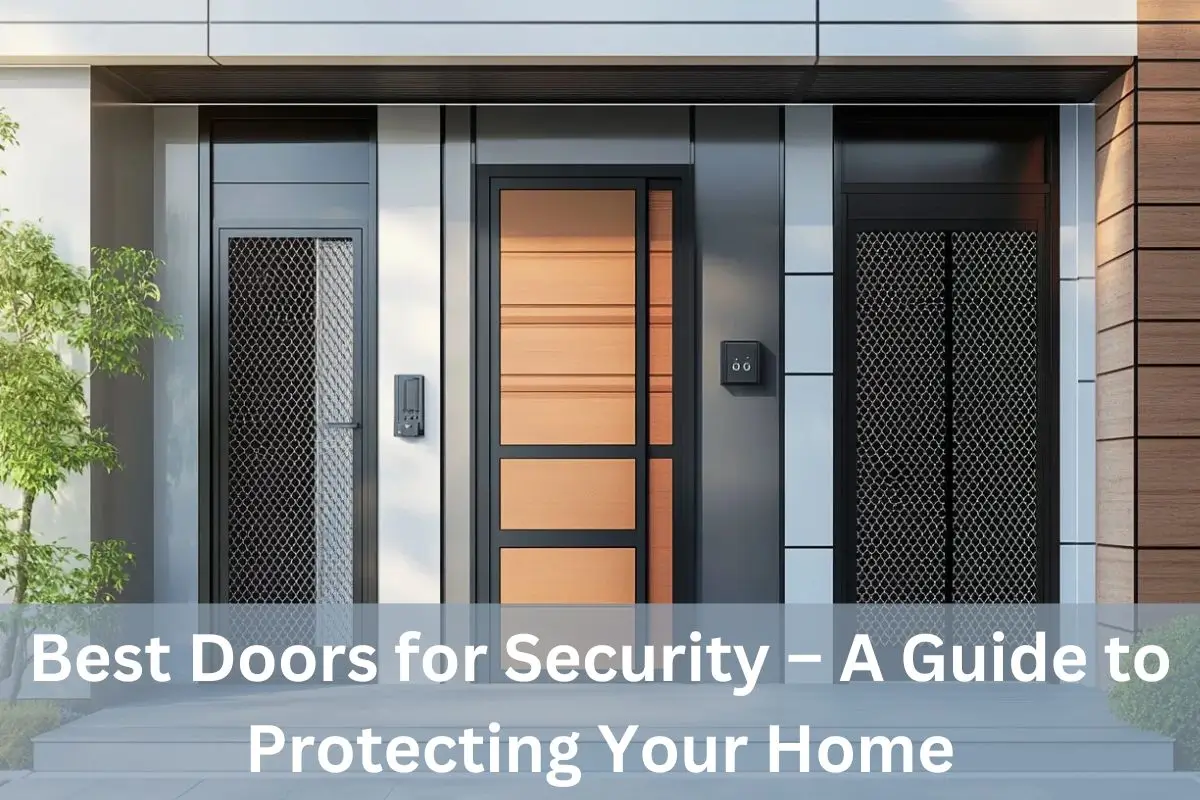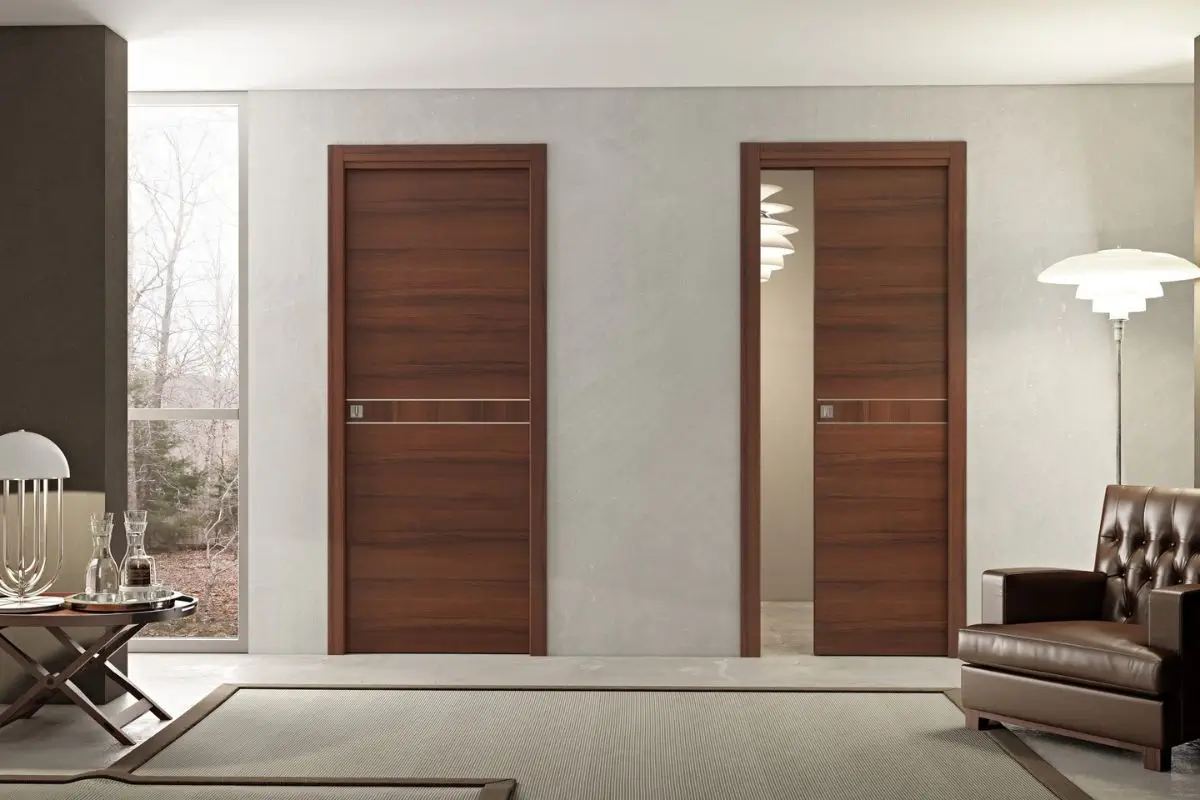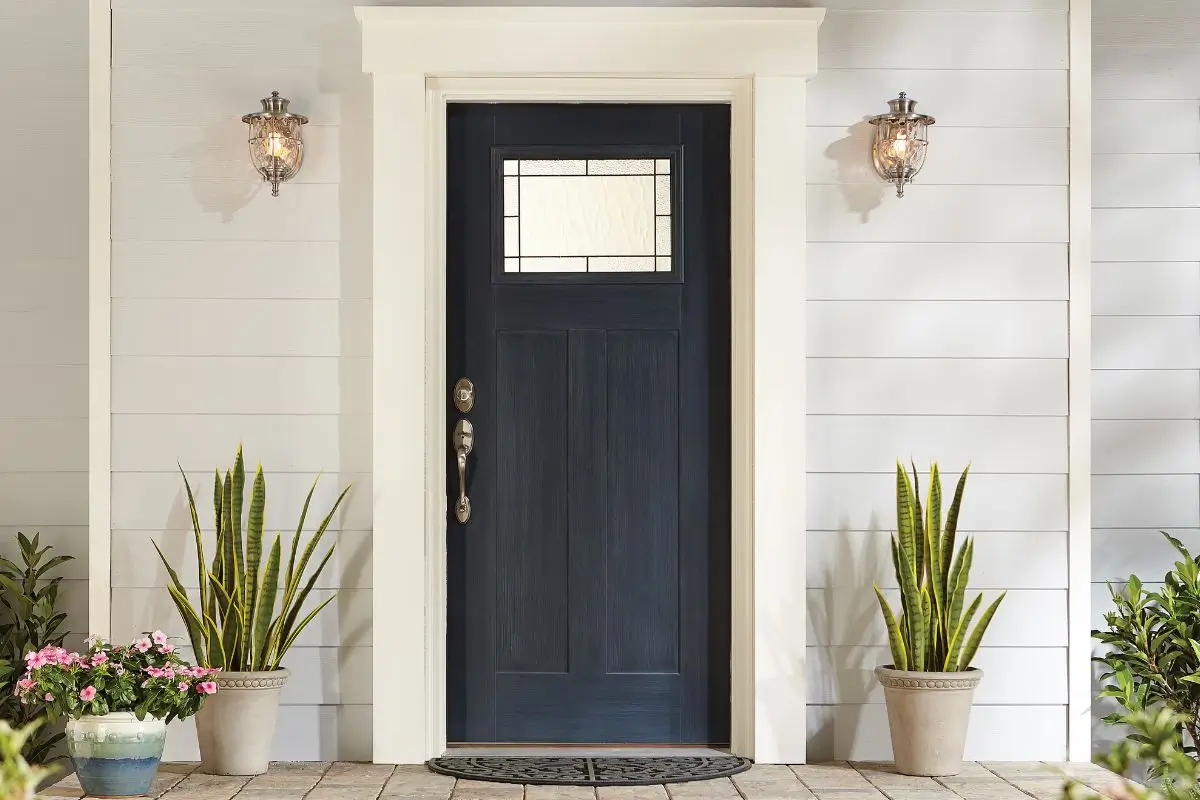
Securing your home begins with choosing the right door. While many focus on alarms and surveillance, the entry point itself is the first line of defense. Investing in a strong, well-constructed door can deter intruders and provide peace of mind. This guide explores the best door types, installation methods, and additional security features to ensure your home is protected from unauthorized entry. Whether you’re upgrading your home security or building a new house, understanding what makes a door secure is crucial to keeping your family and valuables safe.
Top Security Door Materials: Strength You Can Rely On
Security doors come in several materials, each with unique advantages. Steel doors are a popular choice due to their exceptional strength and resistance to forced entry. They are difficult to break through and provide excellent insulation. Fiberglass doors offer durability, weather resistance, and can mimic the look of wood while being sturdier. Solid wood doors are heavy and strong but require proper reinforcement to prevent warping or damage over time. Composite doors, made from a combination of materials, provide superior security and insulation. Aluminum doors are lightweight but still offer solid protection when reinforced.
Why Reinforced Frames Are the Backbone of Door Security
Even the strongest door is vulnerable without a reinforced frame. A steel-reinforced door frame is essential for preventing forced entry, as weak frames can easily be kicked in or damaged. Strike plates—the metal plates surrounding the door lock—must be robust and properly installed, as they prevent the lock from being easily broken. Additionally, using heavy-duty hinges or concealed hinges prevents intruders from tampering with the door’s attachment to the frame. Reinforcing the door jamb (the sides of the frame) can also ensure the door stays securely in place even under pressure.
Essential Locking Mechanisms: How to Fortify Your Door
Locks are a key component of door security. A deadbolt lock is a must for any security door, offering better resistance to forced entry than standard locks. Single-cylinder deadbolts require a key only from the outside, while double-cylinder deadbolts need a key for both sides, providing extra security. Smart locks offer convenience, allowing you to lock and unlock doors remotely, but should always meet high-security standards to avoid hacking risks. Multipoint locking systems provide even greater protection by securing the door at multiple points across the frame. Finally, invest in reinforced door handles to prevent forced entry through weak hardware.
Glass Panels: Beauty with Security – How to Keep Your Home Safe
Doors with glass panels are aesthetically pleasing but can be a security risk. Choosing impact-resistant glass ensures that the door remains secure even if the glass is struck with force. Adding security films to the glass further increases its durability by preventing shattering. For those who want additional protection, consider installing security grilles or decorative bars over glass panels. These can add an extra layer of defense without compromising the design. Ensuring the glass is small or placed higher on the door can also reduce its vulnerability to intruders.
Installation Matters: Best Practices for Maximum Door Security
Even the best security door won’t protect your home if it’s improperly installed. Professional installation ensures the door is fitted correctly, with no gaps or weaknesses that could be exploited. Precise measurements are crucial, as even the smallest misalignment can create vulnerabilities. Additionally, pay attention to weatherproofing during installation. A well-sealed door not only keeps out the elements but also prevents gradual degradation of the door’s materials, which could weaken its security over time. When installed properly, the door should fit snugly into its frame and latch securely without excessive effort.
Add-On Security Features That Could Save Your Home
Adding extra security features to your door can make a significant difference. Peepholes and video doorbells allow you to see who is at the door without opening it, giving you control over who enters your home. Security chains and door bars provide another layer of protection, allowing you to open the door partially without giving full access. Reinforced door jambs also play a key role in home security, preventing the frame from giving way under pressure. By implementing these features, you can increase your home’s security without the need for major structural changes.
Security on a Budget: Getting the Best Protection for Your Money
When choosing a security door, price doesn’t always equate to security. It’s important to evaluate cost vs. security to find the right balance. A steel door may be more expensive upfront, but its durability and long lifespan make it a smart investment in the long term. Meanwhile, composite doors offer security at a more affordable price. Consider additional costs, such as reinforcement hardware and professional installation, when setting your budget. Investing in a high-quality security door is a long-term investment, saving you money on potential repairs or losses from a break-in.
Security on a Budget: Getting the Best Protection for Your Money
It’s essential to ensure your door complies with local building and security standards. Some areas may have specific regulations for door materials, locks, or fire safety, especially in neighborhoods with higher security risks. Additionally, consider whether the door meets fire safety standards, as some security doors are also rated for fire resistance. This added protection is valuable for both safety and insurance purposes. Checking local codes not only ensures your door meets necessary safety requirements but also helps avoid legal issues and ensures your home insurance remains valid.
Conclusion
Choosing the best security door for your home requires careful consideration of the materials, reinforcement, locks, and additional security features. By understanding the strengths of different door types, ensuring proper installation, and incorporating extra security measures, you can significantly enhance your home’s safety. Investing in a high-quality security door is a proactive step towards protecting your family and property from potential intrusions. Remember, a secure home starts at the front door, so prioritize security features that fit your needs and budget while complying with local regulations for optimal protection.


